We are a diverse group of researchers with a clear mission to popularise spatial data analysis. We believe that enriching the studies with spatial features can bring out the links and relations otherwise hidden in a-spatial datasets. We are based at the Faculty of Economic Sciences, University of Warsaw, Poland.
Follow us on Twitter/X: @SpatialWarsaw
Our team:
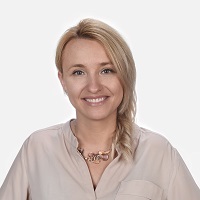
Prof. Katarzyna Kopczewska
Main interests: methodology of applied spatial quantitative methods, R programming, business location, housing valuation, agglomeration, concentration, density, regional development. Editor in Regional Science Policy & Practice, member of EOC in European Regional Science Association (ERSA) and Spatial Econometrics Association (SEA).
ORCID Google Scholar Publons
Twitter/X: @KathyKopczewska

Mateusz Kopyt, PhD
Main interests: spatial analysis in economics (spatial methods), finance, local government finances, intellectual property protection, economic education and teaching of economics, computer software in economics. Member of European Regional Science Association Polish Section (ERSA Polska), Eurasia Business and Economics Society (EBES) and OpenStreetMap Polska.
ORCID Google Scholar Publons
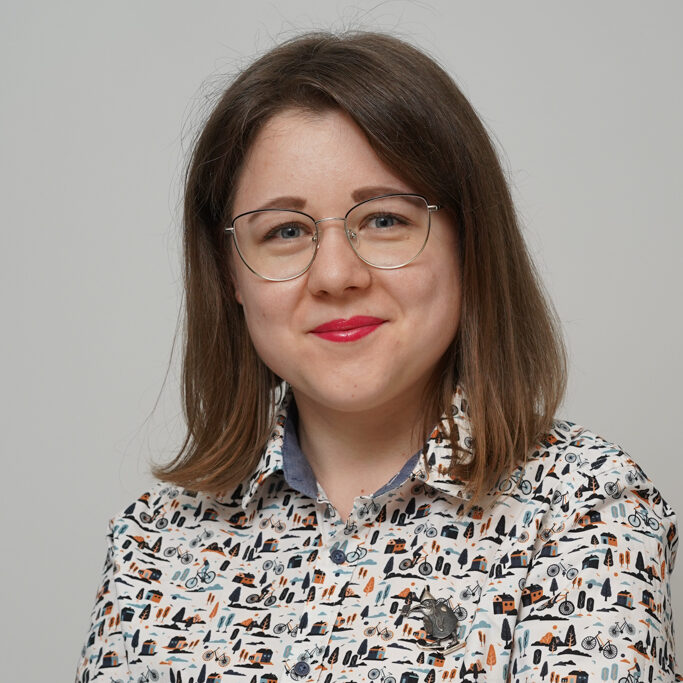
Kateryna Zabarina, PhD
Main interests: R programming, point pattern analysis, business location, agglomeration, spatial modelling, time series analysis. Member of European Regional Science Association (ERSA), awarded with Jean Paelinck Prize for Young Researchers in 2018.
ORCID Google Scholar Publons
Twitter/X: @k_zabarina
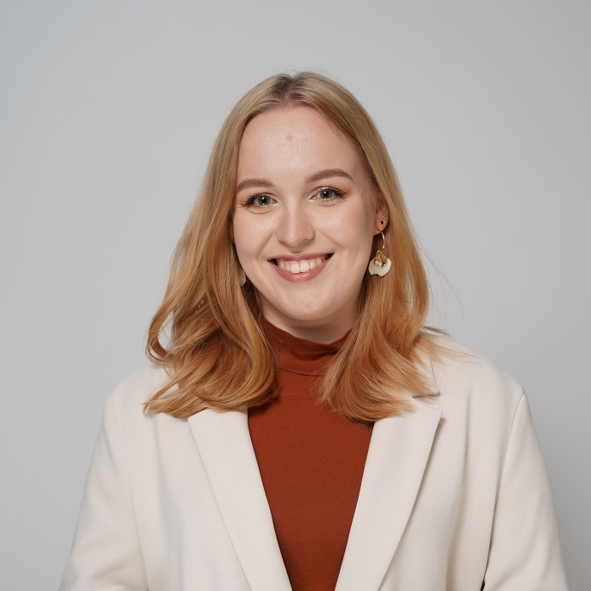
Maria Kubara, PhD candidate
Main interests: spatial data science, causal machine learning for spatial data, R programming, spatial modelling, spatial visualisation and analysis, business location, innovations, cluster analysis. Member of ERSA, awarded with the scholarship for the best young researchers given by the Ministry of Science and Higher Education, Poland in 2019, awarded with Epainos Prize by ERSA in 2022.
ORCID Google Scholar
Twitter/X: @KubaraMaria

Kristóf Gyódi, PhD
Main interests: urban issues related to digitalization, short-term rentals, services provided via platforms, programming in Python, text-mining and spatial data science. Assistant Professor at the Faculty of Economic Sciences and Researcher at DELab at the University of Warsaw. Dekaban Fellow at the University of Glasgow (2024) and Former Visiting Fellow at the Weizenbaum Institute.
ORCID Google Scholar
Twitter/X: @kgyodi

Anna Lewczuk, PhD
Main interests: constitutional economics, Law & Economics, institutional diffusion, and spatial data science. Assistant Professor at the Faculty of Economic Sciences. Laureate of FNP Start programme for outstanding young scientists (granted in 2023).
ORCID Google Scholar
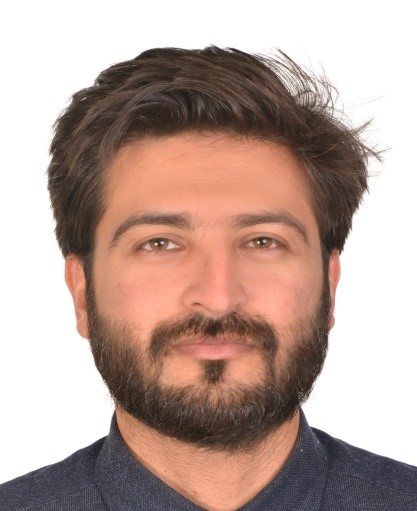
Muhammad Usman, PhD candidate
Main interests: spatial econometrics, explainable artificial intelligence, regional socioeconomic disparities research, R programming. Gradutate from Data Science and Business Analytics MA programme from the Faculty of Economic Sciences, University of Warsaw.
Twitter/X: @Muhammad1032710
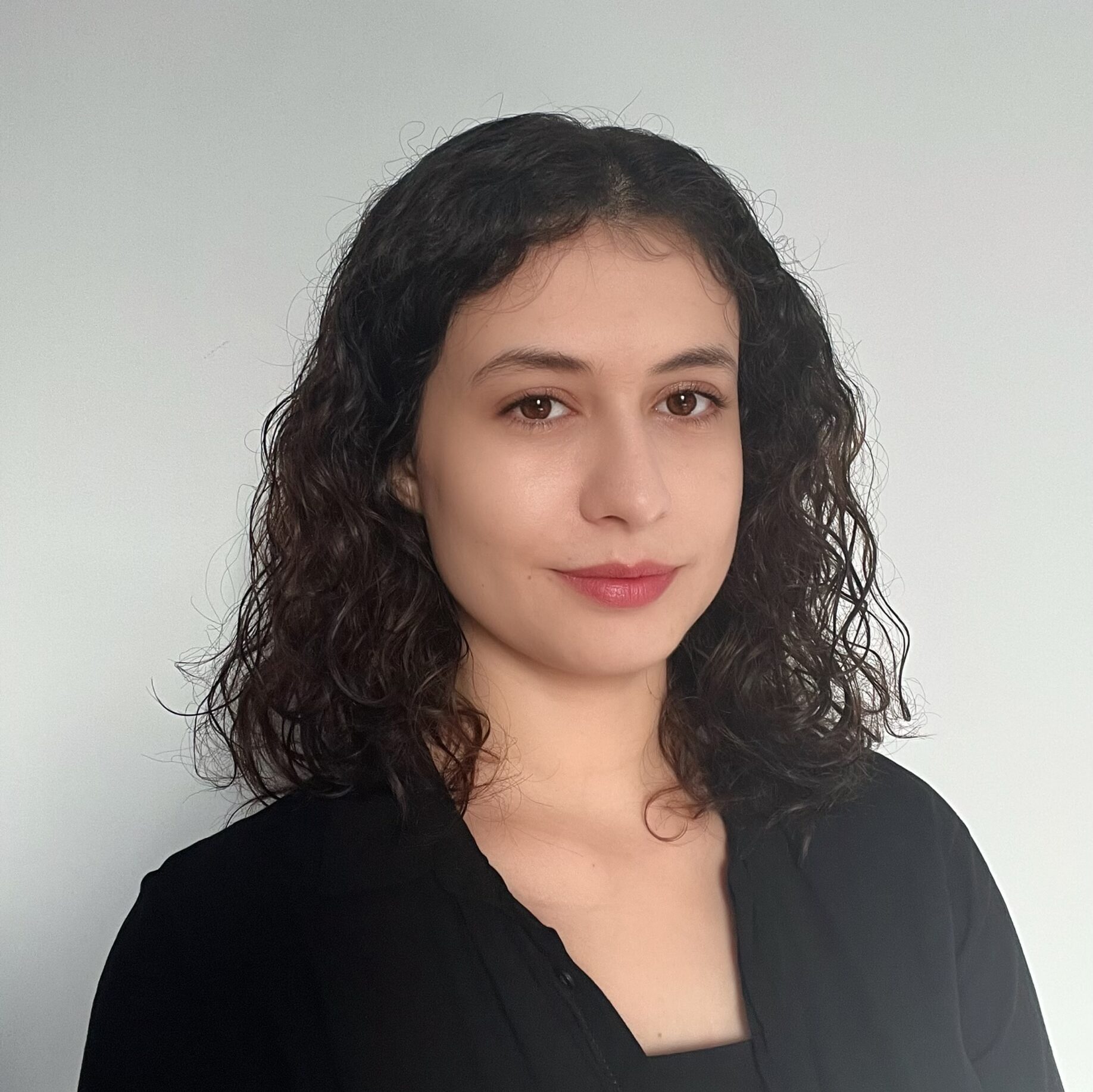
Zehra Usta, MA student
Main interests: machine learning, data science, R programming, Python programming, spatial analysis,
cluster analysis, neural networks, optimization. Master student at the Data Science and Business Analytics MA programme at the Faculty of Economic Sciences, University of Warsaw.
Our latest works:
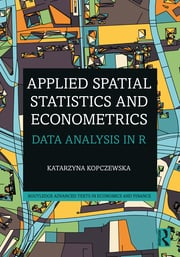
ed. Kopczewska K. (authors: Kopczewska K., Kubara M., Ćwiakowski P., Kopyt M., Wójcik P., Festi A., Zabarina K.), 2020, Applied Spatial Statistics and Econometrics: Data Analysis in R, Oxfordshire: Routledge
Get the book. Get the codes.
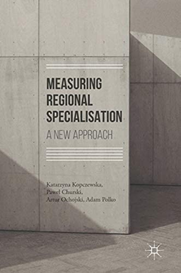
Kopczewska K., Churski P., Ochojski A., Polko A., 2017, Measuring Regional Specialization – A New Approach, Palgrave Macmillan/Springer Nature, 2017
Get the book.
Papers:
Kostecka, Z., & Kopczewska, K. (2023). Spatial CRM and location strategy: E-commerce solutions in the furniture industry. Case of IKEA pick-up points in Poland. Electronic Commerce Research and Applications, 101308. https://www.sciencedirect.com/science/article/pii/S156742232300073X
Kudła, J., Kopczewska, K., & Stachowiak-Kudła, M. (2023). Trade, investment and size inequalities between countries and the asymmetry in double taxation agreements. Economic Modelling, 122, 106244. https://www.sciencedirect.com/science/article/pii/S0264999323000561
Kopczewska, K. (2023). Spatial bootstrapped microeconometrics: Forecasting for out‐of‐sample geo‐locations in big data. Scandinavian Journal of Statistics. https://onlinelibrary.wiley.com/doi/full/10.1111/sjos.12636
Kubara, M., & Kopczewska, K. (2023). Akaike information criterion in choosing the optimal k-nearest neighbours of the spatial weight matrix. Spatial Economic Analysis, 1-19.
https://www.tandfonline.com/doi/full/10.1080/17421772.2023.2176539
Kubara, M. (2023). Spatiotemporal localisation patterns of technological startups: the case for recurrent neural networks in predicting urban startup clusters. The Annals of Regional Science, 1-33. https://doi.org/10.1007/s00168-023-01220-7
Batrancea, L. M., Kudła, J., Błaszczak, B., & Kopyt, M. (2023). A dataset on declared tax evasion attitudes of students and entrepreneurs from Poland under the slippery slope framework. Data in Brief, 48, 109183.
Batrancea, L.M., Nichita, A., De Agostini, R. Kopyt M. et al. (2022) A self-employed taxpayer experimental study on trust, power, and tax compliance in eleven countries. Financ Innov 8, 96. https://doi.org/10.1186/s40854-022-00404-y
Kopczewska, K., & Kopczewski, T. (2022). Natural spatial pattern—When mutual socio-geo distances between cities follow Benford’s law. Plos one, 17(10), e0276450.
https://journals.plos.org/plosone/article?id=10.1371/journal.pone.0276450
Usman, M., & Kopczewska, K. (2022). Spatial and Machine Learning Approach to Model Childhood Stunting in Pakistan: Role of Socio-Economic and Environmental Factors. International Journal of Environmental Research and Public Health, 19(17), 10967. https://www.mdpi.com/1660-
4601/19/17/10967
Kopczewska, K. (2022). Regional development in Central and Eastern Europe and Asia. Regional Science Policy & Practice, 14(4), 697-698. https://www.researchgate.net/profile/Katarzyna-
Kopczewska/publication/363510337_Regional_development_in_Central_and_Eastern_Europe_and_A
sia/links/6329de1070cc936cd321791f/Regional-development-in-Central-and-Eastern-Europe-and-
Asia.pdf
Kopczewska, K. (2022). Night light indicators of regional economic activity. Regional Science Policy & Practice, 14(4), 826-827. https://www.researchgate.net/profile/Katarzyna-
Kopczewska/publication/363506471_Night_light_indicators_of_regional_economic_activity/links/6329
ddb3873eca0c00a085c8/Night-light-indicators-of-regional-economic-activity.pdf
Matuszelański, K., Kopczewska, K. (2022). Customer Churn in Retail E-Commerce Business: Spatial and Machine Learning Approach. Journal of Theoretical and Applied Electronic Commerce Research 17, no. 1: 165-198. https://doi.org/10.3390/jtaer17010009 – https://www.mdpi.com/0718-1876/17/1/9
Kopczewska K. (2022) Spatial machine learning: new opportunities for regional science, Annals of Regional Science, https://doi.org/10.1007/s00168-021-01101-x
Batrancea, L. M., Kudła, J., Błaszczak, B., & Kopyt, M. (2022). Differences in tax evasion attitudes between students and entrepreneurs under the slippery slope framework. Journal of Economic Behavior & Organization, 200, 464-482.
Kopczewska K., Kopyt M., Ćwiakowski P. (2021) Spatial Interactions in Business and Housing Location Models, Land 2021, 10(12), 1348; https://doi.org/10.3390/land10121348
Strzelecki P., Świerczewska A., Kopczewska K., Fheed A., Tarasiuk J., Wroński S., (2021), Decoding Rocks: An Assessment of Geomaterial Microstructure Using X-ray Microtomography, Image Analysis and Multivariate Statistics, Materials 2021, 14(12), https://www.mdpi.com/1996-1944/14/12/3266, https://doi.org/10.3390/ma14123266
Kopczewska K., Ćwiakowski P., (2021), Spatio-temporal stability of housing submarkets. Tracking spatial location of clusters of GWR estimates of price determinants, Land Use Policy, vol.103 April 2021, 105292 https://doi.org/10.1016/j.landusepol.2021.105292
Kopczewska K. (2021) Entropy as a measure of agglomeration, in: Reggiani A., Schintler L., Czamanski D., Patuelli R., Handbook on Entropy, Complexity and Spatial Dynamics. A Rebirth of Theory?, Edward Elgar https://www.elgaronline.com/view/edcoll/9781839100581/9781839100581.00013.xml , codes available at https://github.com/kkopczewska
Kopczewska K., Churski P., Ochojski A., Polko A., (2019) SPAG – Index of spatial agglomeration, Papers in Regional Science, https://doi.org/10.1111/pirs.12470, codes available at https://github.com/kkopczewska
Kopczewska K., (2018) Cluster-based measures of regional concentration. Critical overview, Spatial Statistics vol.27, October 2018, pp.31-57, https://doi.org/10.1016/j.spasta.2018.07.008, codes available at https://github.com/kkopczewska
Kopczewska K., (2019), Assessment of public intervention efficiency: The case of Special Economic Zones, Central European Economic Journal, Volume 6: Issue 53, DOI: https://doi.org/10.2478/ceej-2019-0019
Kopczewska K., Lewandowska A., (2018) The price for subway access: Spatial econometric modelling of office rental rates in London, Urban Geography, vol. 39, 2018, issue 10, pp.1528-1554, https://doi.org/10.1080/02723638.2018.1481601
Kopczewska K., (2016) Efficiency of Regional Public Investment: NPV-based spatial Econometric Approach, Spatial Economic Analysis, vol.11 2016 issue 4, pp. 413-431 http://dx.doi.org/10.1080/17421772.2016.1217346
Kopczewska K., (2016) Comment to XCL co-agglomeration index: distance-weighted improved DCL index, Papers in Regional Science, Vol 95, Issue 4, pp. 903-910, doi:10.1111/pirs.12247 http://onlinelibrary.wiley.com/doi/10.1111/pirs.12247/full
Kopczewska K., Kudła J., Walczyk K., Kruszewski R., Kocia A., (2016) Spillover effects of taxes on government debt: A spatial panel approach, Policy Studies Volume: 37, Issue: 03, pages 274 – 293, http://dx.doi.org/10.1080/01442872.2016.1146246
Kopczewska K., Kudła J., Walczyk K., (2015) Strategy of spatial panel estimation: Spatial spillovers between taxation and economic growth, Applied Spatial Analysis and Policy (2017) 10:77, DOI 10.1007/s12061-015-9170-2, http://link.springer.com/article/10.1007/s12061-015-9170-2/fulltext.html
Kopczewska K., (2014) Skewness, Kurtosis and L-moments in measuring regional convergence and cohesion, Statistica Neerlandica vol. 68, nr 4, pp.251-266, DOI: 10.1111/stan.12031 http://onlinelibrary.wiley.com/doi/10.1111/stan.12031/abstract
Kopczewska K., Kopyt M., (2014) Non-linear corrections in market patent valuation, Business and Economic Horizons, vol.10 issue 3, pp.177-190, DOI: 10.15208/beh.2014.9
Chrostek K., Kopczewska K. (2014) Spatial Prediction Models for Real Estate Market Analysis, Ekonomia 35, pp.25-43 http://ekonomia.wne.uw.edu.pl/ekonomia/getFile/376
Kopczewska K., (2013) The spatial range of local governments: does geographical distance affect governance and public service?, Annals of Regional Science, Volume 51, Issue 3 (2013), pp. 793-810, DOI: 10.1007/s00168-013-0567-z http://link.springer.com/article/10.1007/s00168-013-0567-z
Kopańska A., Kopyt M. (2018) Determinants of indebtedness of Polish municipalities and cities with the rights of counties. Analysis for 2006-2016, Municipal Finance 1/2018, pp. 5-22, https://www.wolterskluwer.com/pl-pl/news/finanse-komunalne-10-2018
Zabarina, K. (2018) Tessellation as an alternative aggregation method, Quantitative Methods in Economics, Volume XIX, No. 1, pp. 78-91, access: http://qme.sggw.pl/pdf/MIBE_T19_z1_08.pdf
Grants:
Kopczewska Katarzyna, 2022-2026, LAMASUS LAnd use and MAnagement modelling for SUStainable
governance, grant in Horizon 2020 (101060423, GAP-101060423)
Kopczewska Katarzyna, 2022-2024, Modelling and forecasting business location in context of economies of density. Theoretical, methodological and empirical approach using spatial econometrics and spatial machine learning, grant from National Science Center Poland (Krakow), grant number: OPUS 21 call [UMO-2021/41/B/HS4/00285]
Kopczewska Katarzyna, 2017-2019, Spatial econometric models with fixed and changing structure of neighbourhood. Applications to real estate valuation and business location, grant from National Science Center Poland (Krakow), grant number: OPUS 12 call [UMO-2016/23/B/HS4/02363]
Kopczewska Katarzyna, 2014-2016, Statistical models to indentify regional specialisation including spatial heterogenity component, grant from National Science Center Poland (Krakow), grant number: OPUS 6 call [UMO-2013/11/B/HS4/01098]
Zabarina Kateryna, 2021-2023, Application of hybrid Gibbs processes to firm location forecast, grant from National Science Center Poland (Krakow), grant number: PRELUDIUM [UMO-2020/37/N/HS4/02061]
Kubara Maria, 2020-2024, Survival determinants of technological startups – spatial factors and interactions, grant from Ministry of Science and Higher Education, Poland, grant number: 0022/DIA/2020/49